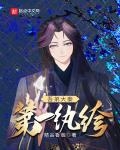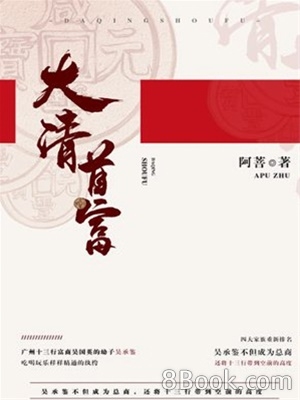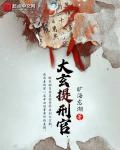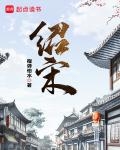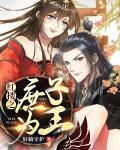Chapter 399: Heroes of the World (Part 3)
The Spanish and French diplomatic team stayed at the station until midnight before going to bed. The next day, they immediately rushed to sign an agreement with the Chinese Foreign Ministry and Commerce Bureau.
Baron Francis was alone last night and was criticized by a group of people. At the formal meeting, the two departments of Huaxia Dynasty had serious discussions and signed a contract on their respective issues.
Although this is a big deal, it is not complicated. From the establishment of embassies to allowing the Spanish fleet to trade 2 million tons of goods in Chinese weight units each year, the paperwork is very simple.
To complicate matters, China has put forward a list of goods that it wants the Spanish fleet to prioritize, and the list itself is graded, with some goods receiving lower taxes.
This is not just for Spain to make money from China by selling things, China also guarantees that the prices of various commodities, from silk to porcelain, from muskets to artillery, will not be higher than before with Francis' father.
After the two sides signed the agreement and determined the docking departments and personnel, there was a small cocktail party. The Spanish and French were stunned by the Chinese food and ate it with their mouths full of oil.
The two countries' joint diplomatic teams returned to their residence, drunk with wine, and Baron Francis sat down to drink tea without saying a word. Others remained silent for the time being, and the atmosphere seemed very strange.
In Europe, if such an agreement is to be completed, it will not be possible without giving a huge bribe to those who are involved. This bribe may account for more than 30% of the entire trade. If the bribe is 50%, from the perspective of the British and Dutch profiteers, it also shows that they are very moral British and Dutch profiteers, or very moral and powerful aristocrats.
In the entire diplomatic team, only Baron Francis thought that although money was necessary, it didn't have to be given at the beginning. He could just give some benefits to the specific person in charge every time the goods arrived.
Such naive ideas made everyone in the Spanish diplomatic team sneer at this young knight who had just become a baron.
A little knight actually thought he understood the evils of the upper class. Haha!
At this point, the Spanish and French team members didn't know what to say. In the end, the real leader of the Spanish team, a member of the royal family, came out to make the decision.
"Let's sell our thirty-odd ships of goods first! At the tariff we have agreed on now."
The news of the Spanish shipments was quickly transmitted to Kaifeng via telegram. A large amount of matte, asphalt, and silver were traded with China. From the data, the growth of silver exports was not obvious, and the main trade content became bulk raw materials. Especially the ten ships of cotton from the Spanish. All of them were long-staple sea island cotton, which was very different from the short-staple Indian cotton that was commonly planted in China at that time.
"Your Majesty, the Spanish goods are what we need. However, they are a bit expensive."
Regarding the Minister of Commerce’s statement, Huo Chong asked: “Expensive? Are you standing on the basis of departmental interests or understanding the entire industrial chain?”
This made Commerce Secretary Weber feel something was wrong. It was not easy to serve such an emperor. Most of the emperors in history books might be wise or average. But they were not the founding emperors without exception. The reason why the founding emperors were so great was that they had experiences that other emperors did not have.
After following Huo Chong for several years, Weber felt that Huo Chong was probably stronger than those founding emperors. The founding emperors did not have the ability to educate their ministers and let them have a broader and deeper understanding. Huo Chong was doing just that.
The leaders of several other departments all came from Huo Chong’s education system, so their attitude towards this matter is much simpler.
"Your Majesty, importing so much goods, won't it be difficult for the millions of transport workers?"
"The millions of canal workers eventually lost their jobs. But I want to ask a question: did the problem of the millions of canal workers appear before or after the construction of the Grand Canal?"
"After the excavation, of course."
"If the first million workers have found a new way out for people who previously had nowhere to go, then what we need to do is to move forward and open up a new direction. Let everyone have a new place to go and get better returns."
A group of cadres trained by Huo Chong's system nodded, saying that this was indeed the direction. Some people continued to ask questions about this issue, believing that it was unlikely to be solved in the short term.
"The number of ports and the throughput require a lot of infrastructure. Without technological advancement, relying solely on piling up people is a dead end. Just like if solid alcohol had not appeared, how high would the cost be to solve the military fuel problem using the old method? It would be so high that no one could afford it."
After Huo Chong said this, everyone nodded. Even Weber felt that this was indeed very correct.
In the past, marching fuel could only be obtained temporarily in the wild. If the country relied on transporting charcoal to solve the problem of fuel, the national finances would be bankrupt. The Chinese army now only needs a few thousand acres of land to grow sweet potatoes, build some alcohol factories, and a few factories to process solid alcohol, and the output is enough to meet the needs of the army.
Compared with the transportation by the laborers, this consumption not only avoids many layers of exploitation, but is also much more reliable. It can even be said that it solves the problem .
From what Huo Chong said, he wanted to solve these problems from the root.
Huo Chong was not in a hurry. One of the most important things at this time was to mobilize all the backbones of the army. Before, for the war, the elites of the Chinese court were all in the army. As long as nothing happened in the local area, even if nothing serious happened, it would be acceptable.
Now the situation has changed. If the envoys from the Qing Dynasty bring relatively rational requests, Huo Chong will agree to them.
Liu Tongxun received the news that the Emperor Huo Chong of the Chinese court wanted to meet them. Although Liu Tongxun had long since put life and death aside, he was still nervous. Everyone in his group seemed to be going to the execution ground, with tragic faces.
Seeing Huo Chong, according to Liu Tongxun's arrangement, everyone just bowed and saluted. Unexpectedly, Huo Chong didn't care at all and just asked everyone to sit down. Liu Tongxun asked, "I wonder what Mr. Huo will do next?"
"I have my own plans, so why do I need you to interrupt me? Since you are here, you don't want me to say this, do you?"
Such an impolite answer made Liu Tongxun feel that the previous topic was like a piece of porcelain that fell to the ground and shattered. Awkwardly, Liu Tongxun could only continue to ask: "I wonder if Mr. Huo has ever thought about a ceasefire?"
I thought this suggestion would be laughed at, but Huo Chong asked expressionlessly: "How long will the truce last? How will the battle line be divided?"
Liu Tongxun was speechless for a moment. Compared with the previous question about Huo Chong's future plans, this sentence was even more perfunctory. Unexpectedly, Huo Chong answered so seriously. Liu Tongxun began to judge Huo Chong's thoughts, but he was confused and couldn't sort them out. While hesitating, Huo Chong's next wave of questions came again.
"Between the Huaxia Dynasty and the Qing Dynasty, only one can survive. Mr. Liu should be very clear about this. Please give a clear answer, Mr. Liu."
Liu Tongxun could only nod. Although Liu Tongxun instinctively didn't want to tell the truth, he had to face reality.
"It doesn't have to be today or tomorrow. The Qing needs to accumulate strength, and so do we. So I am willing to set a peaceful time."
Liu Tongxun suddenly had the urge to scold Huo Chong. Since Huo Chong didn't have the power to unify immediately, why bother pretending! But this was just an impulse, and Liu Tongxun didn't have the courage to say it. Although the old man in front of him had his eyelids drooping, as if he was about to close his eyes at any time, every word he said hit Liu Tongxun's heart . The style of starting with force was so tough that Liu Tongxun felt almost unable to resist.
After a moment of silence, Liu Tongxun mustered up the courage to say, "If Mr. Huo is willing to submit to the court, the court will certainly not hesitate to give him a high official title and a royal seal."
"You are indeed an envoy, but when I tell your words to the subordinates of the Chinese court, do you believe that you will be chopped into pieces within half a day?"
Listening to Huo Chong's calm words, Liu Tongxun felt his blood boiling and stood up, "Your Majesty, do you think this is glorious?"
"Haha. Boy. Don't you think that you are courting death by making such outrageous remarks?"
The attitudes of the two collided like blades, and Liu Tongxun didn't know how to answer for a moment. This is the sadness of the Qing Dynasty at this time. However, ten years ago, the Qing Dynasty faced Huo Chong's rebellion with calm confidence. Even five years before Yongzheng was killed by Huo Chong, the Qing Dynasty felt that the disaster was within the court.
However, in ten years, everything changed. Huo Chong had never played any tricks with the Qing Dynasty. He defeated the Qing Dynasty's army of hundreds of thousands with just his army. The Qing Dynasty, which had lost its military confidence, was just a show of strength but a weakness.
Liu Tongxun was Liu Tongxun after all. He felt something was wrong and immediately apologized to Huo Chong. "Mr. Huo, I am loyal to the court. It is inevitable that I lose my composure when I hear disrespectful words towards the court. Please don't take it personally, Mr. Huo."
"You are a loyal lackey of the Qing Dynasty, so I certainly don't care. But Mr. Liu, if you say nonsense again, I will have to execute you to prove my authority."
The negotiations had reached this point, and Liu Tongxun felt that his patience had really reached its limit. He could only temporarily withdraw.
After leaving Huo Chong's place, Liu Tongxun clenched his fists until they cracked. Hatred was boiling in his heart, and he wished he could crush Huo Chong's throat.
At the same time, Liu Tongxun felt a strong sense of sadness. Is this the sadness of a country on the road to destruction? A hundred years ago, when the Ming Dynasty was heading towards destruction, did the officials at that time also feel the same sadness?
It was not only Liu Tongxun who was unhappy, but also Huo Chong. Huo Chong wanted to kill Liu Tongxun. Especially since Liu Tongxun was Liu Yong's father. Those who have watched the program on identifying treasures know that Wang Gang, the actor who played Heshen, was furious when he saw that Liu Yong's painting was lined with gold thread, and he cursed: "Liu Luoguo, I didn't expect you to be more greedy than me!"
Any fiber product needs a cord as the main bearing force of the fabric. Liu Yong's paintings actually use gold thread to make the cord, which shows how much money Liu Yong embezzled.
Huo Chong is now making rubber tires, and based on Huo Chong's impressions, he is working hard to make tire cords. Generally speaking, modern tire cords are either made of steel wire or nylon 66.
Because the chemical technology is not up to standard, nylon 66 cannot be produced at all. Huo Chong is trying to use fine-spun sisal to make cord yarn, and then use the cord yarn to weave cord cloth.
So when thinking of this technical problem, Huo Chong couldn't help but think of Liu Tongxun's son Liu Yong, who was probably not yet born.
Hu Yue looked at Huo Chong's face and asked tentatively, "Your Majesty, why don't you send troops to the northwest?"
"Nonsense, stop talking nonsense. Don't you know what I'm thinking?" Huo Chong almost exploded.
Hu Yue quickly lowered his head and said, "Your Majesty, I shouldn't have said that."
"Stop talking nonsense! Do you know what I'm thinking?" Huo Chong was not going to let Hu Yue go.
Hu Yue could only be forced to answer: "Your Majesty does not want others to take credit for the victory! The ones who can fight now may not be the generals, but our Chinese army!"
This was quite true, so Huo Chong let Hu Yue go. But after venting a little, Huo Chong felt much better. Indeed, the reason why the Qing Dynasty could not be destroyed now had nothing to do with the Qing Dynasty itself. Huo Chong just didn't want those guys who were not worthy of their positions to get more credit. Even if there was no war, it would be more valuable than letting those scumbags gain benefits.
But Huo Chong also understood that this attitude had offended many people. A lot of people.
Just as Huo Chong expected, the Governor of Jiangsu and Zhejiang, Gao Pang, was facing his father-in-law, Chen Mingtai. Hearing his father-in-law's comment on Huo Chong's suspension of expansion, Gao Pang was very unhappy.
Chen Mingtai soon saw something from Gao Pang's expression. He stopped complaining about Huo Chong's strategy and sighed, "Your Majesty, are you going to clean up the internal affairs now? Even if you have to kill the meritorious officials, at least you have seized the world!"
Gao Pang couldn't help it, "Sir, do you want me to hear this?"
Chen Mingtai was such a smart man that he completely understood what Gao Pang meant. Chen Mingtai was furious. He did not expect that his disciple and son-in-law would stand against him completely.
Although Chen Mingtai was angry, he also knew that Gao Pang was above him in terms of status . Chen Mingtai had no choice but to change his perspective, "Gao Pang, the Hunanese is talking nonsense in front of His Majesty. Officials from Jiangsu and Zhejiang are already in danger!"
"Isn't what the Hunanese said true? Isn't that what the Jiangnan noble families did? Isn't that what the Shaoxing lawyers made up about the official charts and the life-saving talismans they made up? Are they not true?"
Chen Mingtai was shocked. At this time, among the people from Jiangsu and Zhejiang in the Huaxia court, or the people from Zhejiang, Gao Pang and Luo Yiren were rivals, a dragon and a phoenix. Luo Yiren had long been a traitor, and his loyalty to Huo Chong was unbreakable. Now if Gao Pang completely stood on Huo Chong's side, the group of people from Jiangnan in the Huaxia court would lose their backbone. Or there would be a worse situation, and these people would follow Luo Yiren and Gao Pang.
Of course, Chen Mingtai could not accept such a situation. Seeing Gao Pang's expression, Chen Mingtai also knew people like Gao Pang. Without showing any surprise, Chen Mingtai asked, "Gao Pang, do you think there are no talents in Jiangsu and Zhejiang?"
Gao Pang asked indifferently: "Is it a talent from Jiangnan or a talent from the imperial court? Sir, can you teach me?"
"It is rare to find someone who is filial and respectful to his elder brothers but likes to offend his superiors; and it has never happened to someone who does not like to offend his superiors but likes to make trouble!" Chen Mingtai said angrily.
"If the imperial court wants officials from Jiangsu and Zhejiang to wipe out the Jiangnan families who are secretly manipulating the imperial court, do you think those officials from Jiangsu and Zhejiang who are being wiped out are loyal to the imperial court?"
"You!" Chen Mingtai was furious. This statement had made Gao Pang's position clear, and it also made Chen Mingtai feel deeply desperate. No matter what kind of family it was, they were afraid of internal killings.
Although there are many scholars in Jiangsu and Zhejiang, as long as the scholars in Jiangsu and Zhejiang lead a killing in Jiangsu and Zhejiang, the scholars in Jiangsu and Zhejiang will be dead.
However, among the scholars in Jiangsu and Zhejiang, there were already traitors like Gao Pang and Luo Yiren. The most hateful thing was that an emperor like Huo Chong had a clear mind and could understand the main points of the nonsense of those Hunanese.
This is the crisis facing scholars in Jiangsu and Zhejiang!
The meeting between the father-in-law and the son-in-law ended unpleasantly. The subsequent news made Chen Mingtai even more frightened. Huo Chong actually began to reduce the army. The Chinese army, which once had a number of 200,000, was reduced to 100,000. In addition, a large number of officers in the army were withdrawn, and a large number of troops were restored. Those restored soldiers were to be screened as grassroots personnel.
The conscription continued, but Huo Chong ordered that there was only one standard for conscription in Jiangsu and Zhejiang, that is, the person must be a tenant farmer. Those who were not tenant farmers would not be accepted. If no suitable person could be found for conscription, Jiangsu and Zhejiang could choose not to conscript.
After Chen Mingtai learned the news, he felt a deep despair. He wanted to see Gao Pang again, but Gao Pang refused. It was obvious that he wanted to draw a clear line with Chen Mingtai.
Seeing Gao Pang's coldness, Chen Mingtai was furious and went directly to Kaifeng. Along the way, Chen Mingtai's heart was boiling with anger, but also a little uneasy.
Huo Chong's intelligence was a fact that Chen Mingtai had long since denied. So how should he tell Huo Chong what he thought? Once the emperor had a preconceived opinion about a certain region, it would be extremely difficult to change it.
When they arrived in Kaifeng, Chen Mingtai asked to see Huo Chong. Huo Chong quickly agreed to meet Chen Mingtai. After the two met, Huo Chong smiled and said, "Could it be that Mr. Chen is here to ask for the favor of Jiangsu and Zhejiang?"
"Your Majesty, do you believe in the Hunanese and not the loyalty of Jiangsu and Zhejiang? Now the Hunanese are still following the Qing Dynasty, and we in Jiangsu and Zhejiang have already submitted to Your Majesty."
Huo Chong did not respond to Chen Mingtai's question, but just smiled and said, "Haha. Mr. Chen, I have a class right now, how about we go to class together?"
Chen Mingtai had no choice but to agree, as he also wanted to see what Huo Chong wanted to teach the people in the Ministry of Rites.
When Huo Chong arrived to give a lecture, he saw that the classroom was full of people. Huo Chong stood on the podium and spoke to everyone, "In yesterday's class, I asked a question. What is the problem with the so-called regional differences? Does anyone have any ideas?"
Chen Mingtai looked at the students in the classroom and saw that most of them were wearing military uniforms. Only a few of them passed the exam to become civil servants. The sitting posture and expressions of those wearing military uniforms had a unique feeling of soldiers. It seemed that they did not wear military uniforms just to look good.
Some people answered immediately, some said it was the customs, some said it was education, and some said it was the deliberate provocation of the Ming Dynasty and the Qing Dynasty.
After several people who raised their hands to speak finished speaking, Huo Chong said, "To me, these are all results. I will not talk about it from the perspective of human evolution this time. I would like to ask everyone a question. In the south of the Yangtze River, if there is land, can people survive? Is there anyone from the south of the Yangtze River who can answer this question?"
After he said this, a student with a Jiangnan accent stood up and answered, "As long as you have land and don't pay taxes or rent, you can survive."
Huo Chong nodded. "There are many people living north of the Yangtze River among my classmates. I want to ask everyone, in Henan, Shandong, Anhui, and Hebei, can you survive just by having land?"
There was a sigh among the students. After the sighs, some people raised their hands to speak as if awakened from a dream. When they were called by Huo Chong, they stood up and answered with similar content, "These places are seriously affected by floods and droughts. Those who have land are the landowners. The main disaster is that even self-cultivating farmers who have land may not be able to survive! Not to mention the landlords' rent collection and the tax collectors' exploitation."
"This is what is called regional differences. Different harvest levels determine different traditions. If there were no imperial court, most people in Henan, Hebei, Shandong, and Anhui would probably die in years of disaster. It's not that the people in these places are different from those in Jiangsu and Zhejiang, or that they are particularly loyal to the imperial court. It's that without the imperial court and the morality of the people, everyone can't survive! Morality is a skill that must be possessed in order to solve problems. In order to avoid being liquidated by the victims of the disaster, the landlords in these places must provide porridge in years of disaster. And in order to get more effective relief, the people in these places must be loyal to the imperial court!"
Chen Mingtai felt dry in the mouth when he heard this. He suddenly had some doubts, why can Huo Chong speak so openly about such a matter of reasoning? Although Chen Mingtai felt that Huo Chong's words were a heart-piercing argument, the fact that the most sarcastic and harsh heart-piercing argument could be said so openly made Chen Mingtai feel enlightened.
From this perspective, Jiangsu and Zhejiang, which can easily be self-sufficient, naturally have no tradition of being loyal to any court. As long as they don't collect taxes, Jiangsu and Zhejiang can completely solve their own problems. The court is a burden to Jiangsu and Zhejiang, unlike the Central Plains and the four northern provinces, which always need the court and therefore need the court to exist.

